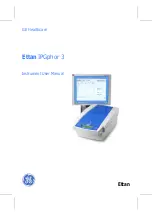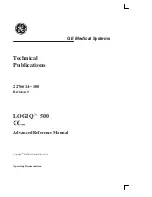
RUSH DC1 Aqua User Manual
11
Physical installation
Read ‘Safety information’ on page 5 before installing the
fixture.
The fixture is designed for indoor use only and must be used in
a dry location with adequate ventilation. Ensure that none of the
fixture’s ventilation slots are blocked.
Fasten the fixture to a secure structure or surface. Do not stand
it on a surface or leave it where it can be moved or fall over. If
you install the fixture in a location where it may cause injury or
damage if it falls, secure it as directed in this user manual using
a securely anchored safety cable that will hold the fixture if the
primary fastening method fails.
Martin™ can supply suitable safety cables and rigging clamps for use with the
fixture (see ‘Accessories’ on page 33).
Fastening the fixture to a flat surface
The fixture can be fastened to a hard, fixed, flat surface that is oriented at any
angle. Ensure that the surface and all fasteners used can support at least 10
times the weight of all fixtures and equipment to be installed on it.
Fasten the fixture securely. Do not stand it on a surface or leave it where it can
be moved or fall over. If you install the fixture in a location where it may cause
injury or damage if it falls, secure it as directed below with a securely anchored
safety cable that will hold the fixture if the primary fastening method fails.
Mounting the fixture on a truss
The fixture can be clamped to a truss or similar rigging
structure in any orientation. When installing the fixture
hanging vertically down, you can use an open-type clamp
such as a G-clamp. When installing in any other orientation,
you must use a half-coupler clamp (see illustration on right)
that completely encircles the truss chord.
To clamp the fixture to a truss:
1. Check that the rigging structure can support at least 10 times the weight of
all fixtures and equipment to be installed on it.
2. Block access under the work area.












































